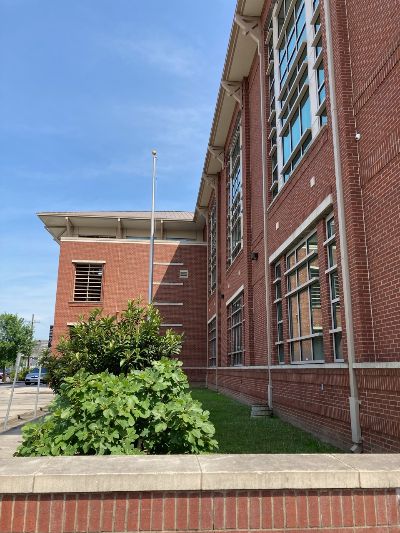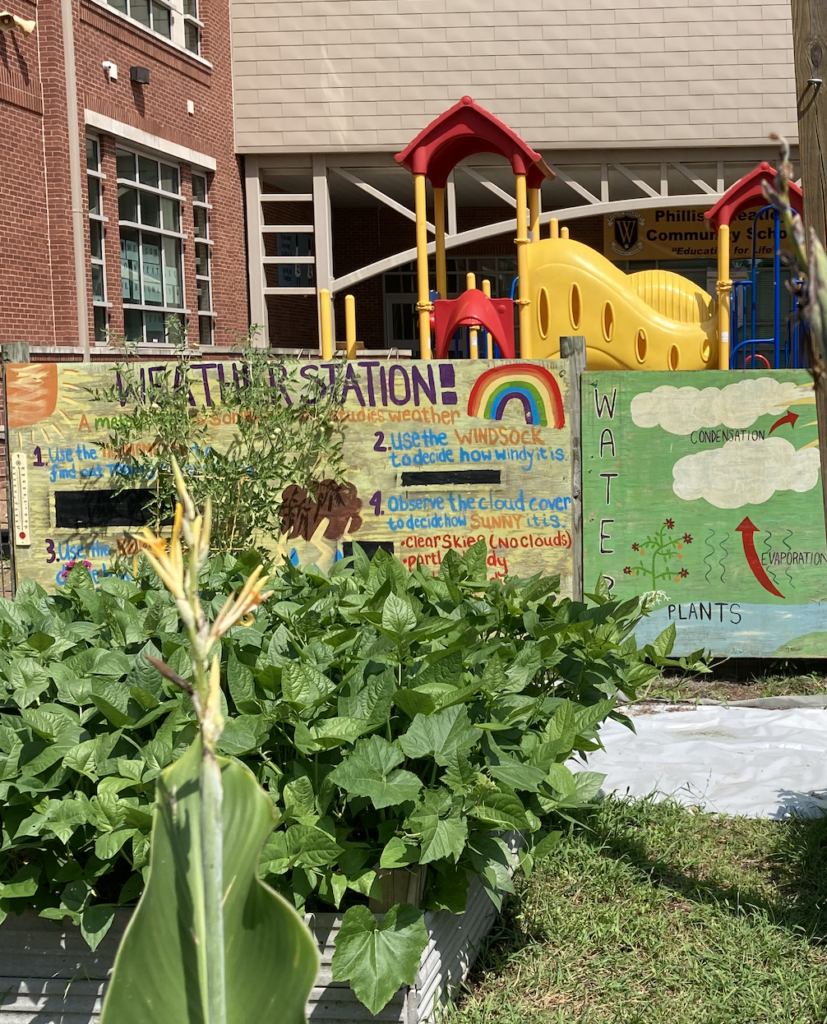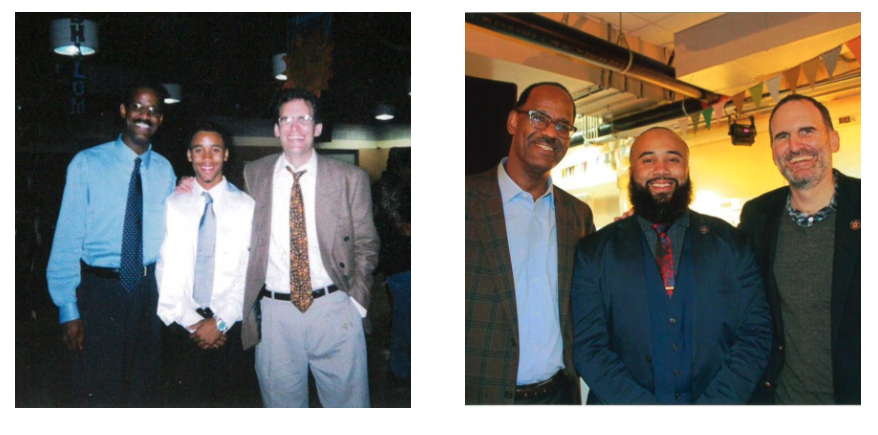L: Neil Williams (center) at his 8th grade graduation with Dr. Tony Recasner (left) and Jay Altman (right).
R: Dr. Recasner, Mr. Williams, and Mr. Altman at FirstLine’s 20th anniversary celebration
“How do I make them worry even less every day?”
Connecting with Neil Williams of FirstLine Schools
Neil Williams knows FirstLine Schools.
He knows the bus routes and the bricks of the buildings. He knows the HVAC systems and the timing of every lunchroom.
He knows the teachers, and he knows what they need before they have to ask—more lined paper? New computer chargers? He ordered them two weeks ago.
He knows the children. The kindergarteners think he’s another principal, and he’s stopped correcting them, because it can be difficult to explain all that he does. To them, he’s one of many loving adults that helps run their school—and they are right about that.
Williams is the Director of Facilities and Maintenance, and he knows FirstLine Schools because he’s worked there for almost 18 years. He also knows them because he went to New Orleans Charter Middle in the 1990s, which was co-led by Dr. Tony Recasner and the founder of FirstLine, Jay Altman. New Orleans Charter Middle became Samuel J. Green Elementary, which is one of five schools in the FirstLine Network today.

Williams loved New Orleans Charter Middle. He wanted to go even when he was sick.
“I could remember where, if I couldn’t go to school, you basically would have to tie me down. I was like, ‘No, I’m going to school today.’ Because you didn’t want to miss whatever was offered,” he says.
Williams says that New Orleans Charter Middle was powerful for its engaging, creative academic environment, strong teachers, and the tight-knit community it fostered.
Now, he wants to help create a school environment that feels that way for today’s students. While Williams doesn’t teach students directly, he is always thinking about what they need to learn, and what teachers need to teach them.
He says he wants to “make sure that every employee has whatever materials they need to provide quality instruction. I don’t want teachers worried about if they have enough pencils, you know?…I always think to myself, how do I make them worry even less every day?”

He wants to make the learning process as smooth as possible for children, and uses his own experience as a guide. He says he knows he can’t eliminate every barrier students face, but he focuses on what he can control.
“There are a lot of factors that contribute to why students have trouble learning…so any facet of the day, that could potentially disrupt like that positive experience? My focus is on getting it fixed…The light buzzes when I turn it on? My outlet blinks on and off? Or my speakers are fuzzy?
As a kid, I was easily distracted. And something like that will detract from the lesson for me. If I can hear that buzzing feedback from the smartboard speaker, that’s what I’m thinking about. So it’s big and small, just making sure the environment is as conducive as possible.”

He wants the physical space of the school to be welcoming and appropriate for children. He wants them to see the care FirstLine feels for them in the environment they provide.
“Are the chairs there? Is the desk clean? Is everything appropriately sized—is a kid reaching too high up to write or is the desk too tiny and crushing their legs? Every year, we make whatever minor adjustments we need, and at the end of the day, when things are defective and old, we don’t keep relics of deterioration…my attempt is to send a signal to them that we care about the environment around them.”

When COVID-19 brought school online, Williams brought this same attitude to addressing the new, complex needs across his network. It was a high-stress time, but Williams tries to channel anxiety into action. He is a U.S. military veteran who fought in Iraq, and he says this experience helps him put obstacles into perspective. When schools were struggling to keep up with the technological needs of distance learning, he learned how to fix computers.
“You send out a lot of computers, and laptops come back broken, so I was like, ‘we’re going to learn how to do this so we can help the IT people at the schools, who are overwhelmed.’ You know, we learned to get these things up and running so we reduce the downtime of kids who are missing instruction.”
In moments like these, as with most of his work, Williams is behind the scenes. But he looks forward to the interactions he has with young people.
He has nieces and nephews across FirstLine’s schools, and he’s been a guest reader in his niece’s classroom. He also has small, joyful moments as he walks through buildings and conducts his daily work.
He describes one such moment, before schools shut down for COVID-19. He was visiting a school and a line of young children were headed to lunch.
“I didn’t know any of them individually, but they saw the teacher say ‘good afternoon’ to me. So one by one, they start saying ‘good afternoon!’ And at some point, one kid walks up and just gives me a hug. And then like every kid following him in line was like, ‘’good afternoon, here’s a hug!,’” he says. “You get a lot of moments like that.”
These moments, and Williams’ frequent presence across FirstLines’ campuses, don’t go unnoticed by children. He says that he runs into young people all the time around the city who recognize him. They tell him about the teams they’re on, the grades they’re getting, the colleges they’re headed to. He appreciates this.
“I’m not with them every day in the classroom,” he says, “but yet, somehow they still remember me.”
